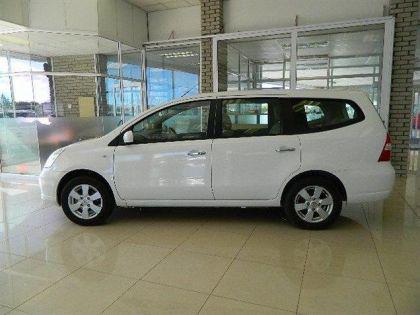car news australia
Should You Buy a Car That s Been in an Accident?
Should You Buy a Car That’s Been in an Accident?
Car News
In the days of CARFAX and Autocheck, it’s lighter than ever to tell if a vehicle you’re considering was in an accident. For many shoppers, CARFAX and Autocheck mean a process that once meant visiting a skilled figure shop can now be treated with the click of a button. What if that click exposes some bad news, such as past harm? Should you buy a car that’s been in an accident? We have a few suggestions.
The very first thing we’d do if we found an “accident car” is figure out how bad the accident was. Sometimes CARFAX will report this information. For example, I recently looked at a pickup for which CARFAX said: “Minor harm; vehicle was driven from the scene.” That doesn’t bother me so much, since it means the truck was very likely only dented or scraped.
A CARFAX report that says “major harm” or notes a car was towed from the crash site is certainly a crimson flag. However, CARFAX isn’t always accurate. Sometimes, a 4-car accident in which three cars sustain major harm can demonstrate up as “major harm” on the undamaged car’s CARFAX report. Such errors are just a reality of the system. And that’s why we recommend having a car investigated if you’re even a little worried about a bad CARFAX report.
Check It Out
If the CARFAX report brings up any crimson flags or questions, we strongly recommend taking the car to a trusted mechanic or bod shop. We certainly suggest this take place through a mechanic or assets shop you know and not through the seller.
Most mechanics or bod shops can quickly identify a car that’s had paintwork. Looking underneath painted panels, many can find evidence of a prior accident. But if a car is a indeed good deal, that alone isn’t reason to funk. After all, thousands of cars are in accidents — especially minor ones — every year. Does that mean they should never be considered again?
Who Motionless It?
One major factor is figuring out the quality of the repair. Who immobilized it? Was it a “factory” assets shop with ties to the automaker? Or was it a cheap repair job done as quickly as possible? Your mechanic should be able to tell you his opinion. But if paint colors don’t match or panels don’t decently fit, that’s a sign it wasn’t a thorough fix — and there could be more issues underneath. We also recommend looking at emblems and badges. A car that was hit in back and lost its emblems may be a sign that the figure shop cut corners on the repair.
Title Status
Maybe the thickest thing to consider when you’re thinking about buying an accident car is its title status. In many states, a salvage title is issued to a vehicle in which the cost of repairs exceeds its present value. Meantime, a rebuilt title is issued when a repaired car has been probed by the state and meets certain safety criteria.
In both cases, a so-called branded title is a mark that will stay with the car forever. A rebuilt title can never be altered, so the next buyer will know the car has been in an accident. And some insurers won’t provide coverage for cars with rebuilt titles, since it’s difficult to know their value and condition. As a result, we generally suggest staying away from rebuilt or salvage titles.
Resale Value
One last consideration with accident cars is resale value. If you buy a car knowing it was in an accident, it’s likely the next buyer will lightly find out the same thing. So while you’re paying less up-front for your vehicle, recall you very likely won’t get as much when you go to sell it — and keep in mind that your car may be a rough sell.
Related movie:
http://www.youtube.com/watch?v=6xKxEnR3cNc
